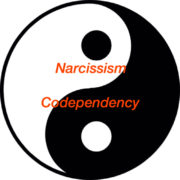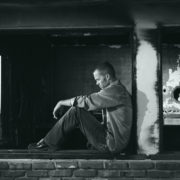Let’s start with the bad news, but with the knowledge this is all PREVENTABLE! I struggle so much with how to make this important topic more palatable, but feel strongly that knowing the SUPER-power of connection is critical to good mental health. Did you know you have an inborn ‘connection neediness’ level? It is different for each individual and varies widely among us.

How Your Connection Level Is Affected
How’s your ability to self-regulate the moods and the emotions you feel when isolated? Can you ride it out, or is your go-to rumination? This is about how you maintain an even keel when you face challenges. Some people are more reactive than others.
How do you perceive your interactions with others? Do you over-interpret what others are saying? Are you super aware of how they might be reacting to what you do, say, or wear? Do you frequently apply negative self-labels? If your lens isn’t so rose colored, you may need to change glasses.
So many people experience loneliness today. Factors affecting this include situational variables, such as physical isolation, moving to a new location, and/or when a significant relationship ends.
The Health Consequences Of Loneliness
Loneliness has a wide range of negative effects on both physical and mental health. Some of the the health risks associated with loneliness include:
- Depression and suicide
- Cardiovascular disease and stroke
- Increased stress levels
- Decreased memory and learning
- Antisocial behavior
- Poor decision-making
- Alcoholism and drug abuse
- The progression of Alzheimer’s disease
- Altered brain function
Research has shown that loneliness can impact stress, heart health and immunity. But these are not the only areas in which loneliness takes its toll. Cacioppo says:
Lonely adults consume more alcohol and get less exercise than those who are not lonely. Their diet is higher in fat, their sleep is less efficient, and they report more daytime fatigue. Loneliness also disrupts the regulation of cellular processes deep within the body, predisposing us to premature aging.
Tips To Meet Your Connection Needs
- Recognize that loneliness is a sign that something needs to change. It is urging you to seek connection.
- Understand the effects that loneliness has on your life, both physically and mentally (see above list).
- Consider doing community service or another activity that you enjoy. These situations present great opportunities to meet people and cultivate new friendships and social interactions.
- Focus on developing quality relationships with people who share similar attitudes, interests and values with you. Good ways to duo this include joining clubs for things that interest you: garden, book, Maj Jong, bridge, games, cooking, etc., that meet regularly.
- Expect the best. Lonely people often expect rejection, so instead focus on positive thoughts and attitudes in your social relationships.
My philosophical view is that humans have a very short time on this planet, and life will always be filled with challenges. I simply see no point in struggling with them alone when getting a little help will shorten the time you spend struggling.
Shoot me an email if this is the case. Or go to my contact page; there are several ways to reach me. Let’s figure out how to get you connected together.
Resources: Check out this TED Talk by John Cacioppo or his book: Loneliness: Human Nature and the Need for Social Connection, Cacioppo and Patrick, 2008.










